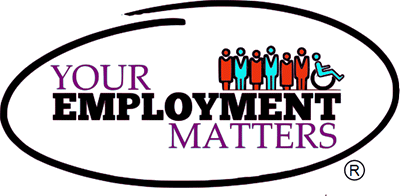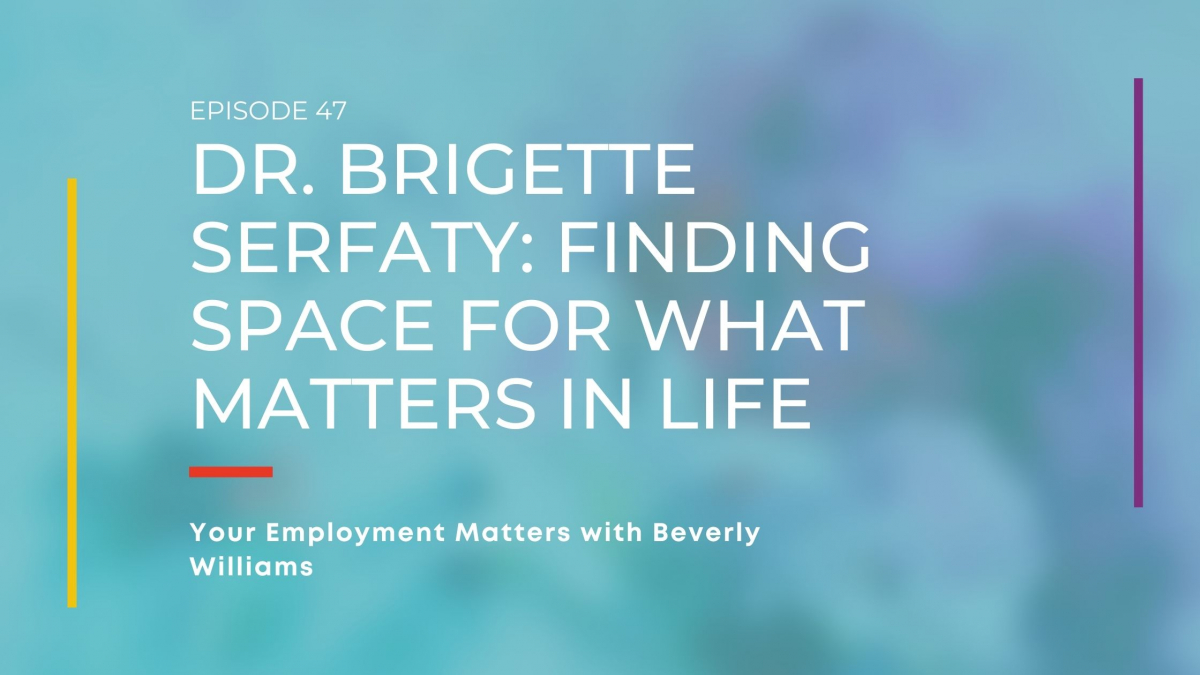Our guest today, Dr. Brigette Serfaty, is distinguished in many ways: Associate Professor of Nuclear Pharmacy, Director of Nuclear Education online at the University of Arkansas and President of Aligned Engagement Strategies group (an executive wellbeing coaching practice focused on what matters, especially during COVID).
Dr. Serfaty works with individuals to help them identify things that are important in their lives, without saying, “I don’t have time.” She’s passionate about helping professionals reconcile things they do with a work-life balance. As she describes it, she has plenty of experience
“doing the dance between work-life balance and over-commitment.”
Dr. Serfaty received her Doctor of Pharmacy from University of Arkansas Medical Sciences and her MSc from Purdue University. In addition, she’s board certified in nuclear pharmacy, lifestyle medicine and health wellness coaching, mindfulness, yoga, and yoga therapy. Her interview will help you identify what is important in your life.
She grew up in small town Arkansas and moved back during the pandemic, which she sees as one of the blessings of COVID. When a friend retired from a faculty position, she went back home and took on the new position, where she is now. She talks about the joys of being back with family after many years.
She also discusses why Nuclear Pharmacy isn’t a typical specialization and why she enjoys the work so much. Part of that is the relatively small community of professionals, where she could meet and get to know many of her colleagues. Taking on different jobs and positions throughout her career also helped her place herself as the ideal candidate for the university position. This is an important tactic for anyone who wants to become an attractive candidate and maximize their own marketability.
Dr. Serfaty talks about the importance of learning and exploring when we’re young and being willing to do things that you might not recognize as important at the moment, because we never know where that might lead. This approach is particularly important in the post-COVID world, where jobs are changing and we might not all be returning to the same job we left.
While it’s important to position ourselves to be as valuable as possible, it shouldn’t be at the expense of our own personal well-being. This is where Dr. Serfaty found herself in her career after some corporate downsizing. She talks about how you can come back from this situation, and what to do now. It can be the best thing that ever happens to you, and a true growth opportunity.
As an entrepreneur, Dr. Serfaty has found it’s important to mastermind with other entrepreneurs to achieve the same kind of community and reciprocal helping. The connection you achieve is huge.
Another secret weapon is being willing to learn and not be afraid to look like a beginner. Ask questions and be willing to say “I don’t know.” Beware of how your “inner critic” may be holding you back!
Beverly relates what happened when she joined a writers’ group while writing her first book and the value of helping others, as well as the value of asking for help. We might need to stop, move past our kneejerk reaction, and then decide how to behave. We must be more mindful of what we’re able to do as well as our own limitations. It could change someone’s life.
For those of us post-COVID, we now have this same opportunity: to ask what’s important to me. Can I say “yes” to what matters? Am I taking care of my own health and resilience so that I’m able to do that? This is what Dr. Serfaty works on with clients: why don’t you have enough time? Is it truly that you don’t have time, or something else?
Dr. Serfaty says we have to be more intentional in that area. We need to be careful we don’t bring over commitment to our pursuit of joy: ask how much energy you have, and how you want to spend it so you can still be productive. That way, you won’t disappoint yourself or others.
When it comes to time management, awareness is also important: can you recognize that you’re distracted and fragmented? Ask why you’re procrastinating and what you really want to do. It’s also important to come back into your body as well, what she calls “mindfulness in motion.” Then, engage and respond instead of just reacting without thinking. In all these things, you need to be intentional.
This approach also relates to personal branding and the impression we make out in the world. Most of us want to contribute and be valuable to others. Your vision of who you are can help you have the awareness to change habits so your behaviors are congruent with who you want to be.
Dr. Serfaty mentions Sally Hogshead’s How to Fascinate, which talks about how the world sees you, and Beverly mentions O-Net, the government assessment tool. Both help us to understand our own strengths and what we are best suited to do, rather than follow what others (parents, spouses) might want us to do.
Beverly talks about how she found some positive outcomes from the tragedies of the COVID pandemic. You can take advantage of a negative and turn it into a positive as well. Dr. Serfaty says that’s what resilience is: moving through the loss and figuring out the meaning you can take from it, and move on. Then asking, “What can I do now?”
Dr. Serfaty says we have to pay attention to what we can influence, such as our own health, lifestyle, resilience so we can stay on the job. If COVID has taught us anything, it’s that going into a pandemic with some resilience and health is way better than going into the pandemic without it. This is a great opportunity to do things differently and find the habits that aren’t serving you—and then do things differently.
The American College of Lifestyle Medicine breaks it down to the key components—sleeping, stress resilience, movement, eating, community and connection, and substance use—these are all critical to examine in times of COVID and all the stress that we’ve endured because of it. Take a look at the way you’re living so you can do it well for the next go-round.
Finally, Dr. Serfaty discusses the concept of culinary medicine and how important food and cooking are related to health. This makes her hopeful about medical education and education in general. Wellbeing can be great even if health itself isn’t great; it’s important to see where these two factors are separate.
The most important thing is to do the reflection around your own wellbeing and health, for whatever age you are now and forward. Get assistance if you need any. She offers complimentary consults.
Connect with Dr. Serfaty
Brigette Serfaty on LinkedIn
Related Posts
- Redefining Power Dynamics in Negotiation Beyond Gender ( July 5, 2024 )
- Aligning Values and Roles in the Workplace ( June 11, 2024 )
- Why Unions are Still Needed in Today’s Workplace ( April 22, 2024 )
- Navigating Generational Dynamics in the Workplace ( April 16, 2024 )
- Building a Better Workplace through Unions with Richard Hooker, Jr. ( April 1, 2024 )
- Applying Collaborative Law Principles to Employment Challenges ( March 25, 2024 )
- Navigating Labor Management Relations and Career Strategies ( March 12, 2024 )
- Overcoming All Odds and Achieving Success ( February 5, 2024 )
- Navigating Labor Laws and Labor Relations with Dean Burrell ( August 25, 2023 )
- Transforming Pain into Purpose with Christine Macdonald ( August 16, 2023 )

